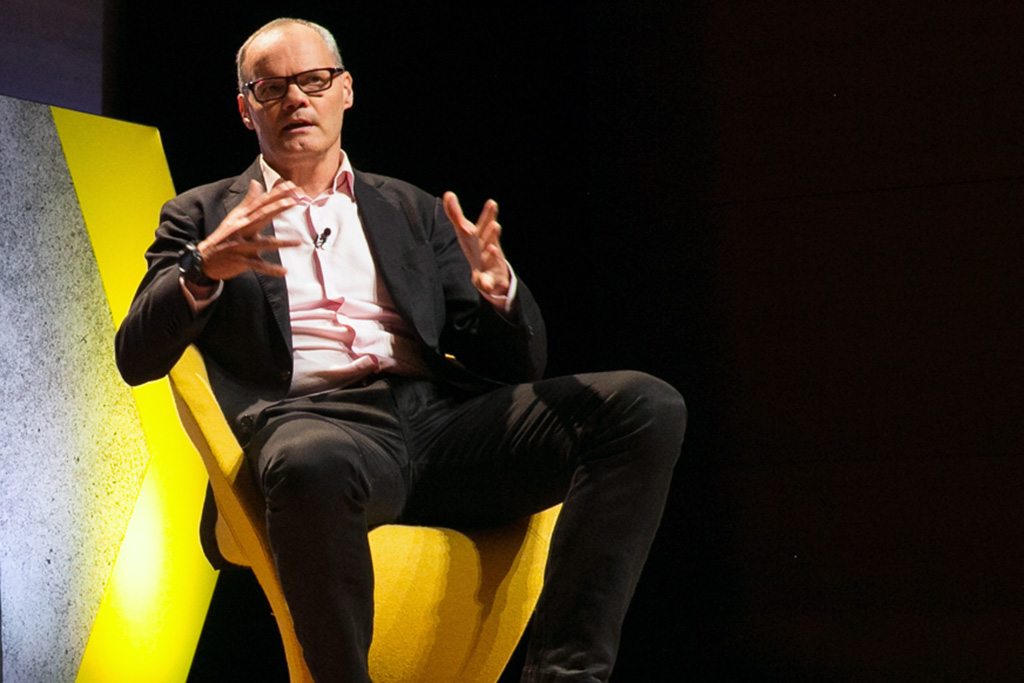Interview: Ex-Starwood CEO on the Essentials to Disrupting Any Industry

Skift Take
You don't have to be a hotelier or a business executive to appreciate the insights and tales shared by the former Starwood CEO in his new book. This is especially the case at a time when everything around us seems to be in a state of transition or disruption, no matter the industry.
When former Starwood CEO Frits van Paasschen took to the stage at the Skift Global Forum in September, it was a bit of a surprise to many in the audience.
This wasn't just because van Paasschen was a fairly late addition to the lineup, but also because so many in the travel industry had wondered what he'd been up to since leaving the hotel company he led for eight years from 2007 to 2015.
Well, now we have our answer, and it's in book form.
Since resigning from Starwood in 2015, van Paasschen has been busy working on what would ultimately become The Disruptors' Feast: How to Avoid Being Devoured in Today's Rapidly Changing Global Economy.
"I was prompted to write the book because I felt that, from the vantage point that I had, as CEO of Starwood, I had a great way to observe the world and see what was happening, both from the standpoint of major trend lines that I think are shaping the world around us, but also some of the disruptive things that it's causing," van Paasschen said. "I felt that I had something to say about disruption and change, and frankly, that disruption is testing our ability, collectively and as individuals, as companies, as a society, to respond and adapt."
So much has transpired since the travel industry last saw van Paasschen at the helm of Starwood.
Starwood Hotels, once one of the world's largest hotel companies, was devoured by one of its competitors, Marriott International, in September. Airbnb, which began in 2008, is now valued at $30 billion — nearly the same market cap of the newly combined Marriott and Starwood. And the disruptions, not only in hospitality but in travel overall, continue.
For van Paasschen, working the book for more than a year was driven by a desire to share what he'd learned in his own role at Starwood.
"I suppose, underlying that was, to a certain extent, my own frustration in trying to address that disruption while I was at Starwood," he said. "I didn't want this to be and feel like an academic book, but something where anyone with curiosity or concern about what's happening and changing could read it and come away with some useful lessons."
Whether you're an academic, hotelier, traveler, techie, or technophobe, there are multiple lessons to be gleaned from van Paasschen's book. It's a mix of intimate, personal stories, many of which detail his travels as Starwood CEO, as well as his work as CEO of Coors Brewing Co., and as an executive of global brands like Nike, Disney,
